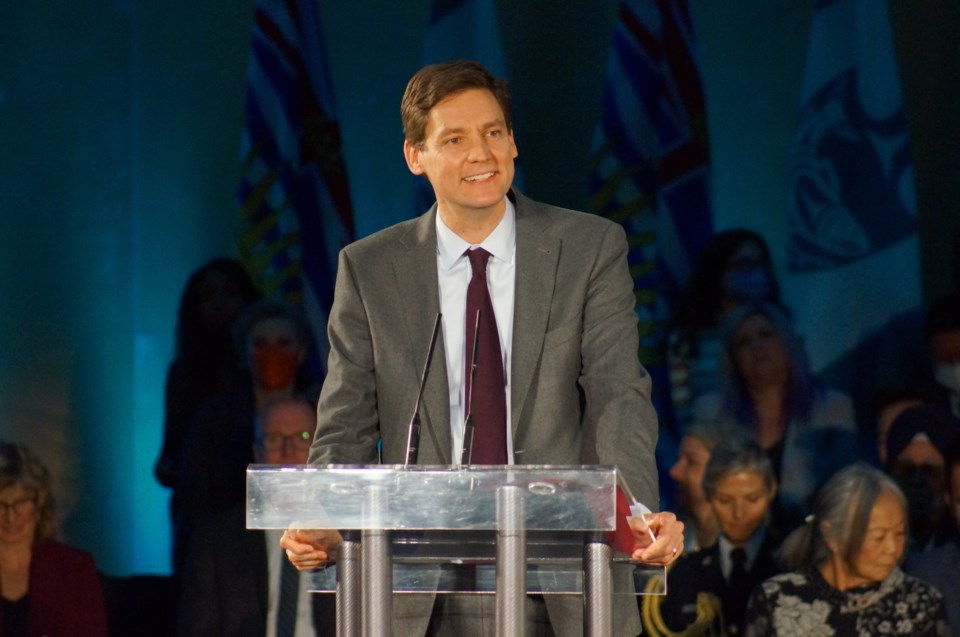One of my most vivid memories from high school is attending a Holocaust Symposium at the University of British Columbia.
I’m not sure if all high school students went, or if it was a special interest of my Social Studies or History teacher. I’ve always assumed everybody went, but that could be wrong.
What I remember most — and we’re going back 40 years — was hearing from a Holocaust survivor. We sat with her in a group of about 10 students at a small table, listening to her story and asking her questions.
She showed us her tattoo: six numbers in blue ink marking her as a prisoner and a Jewish person. She also told us about her family and how they were forcibly moved, sent to a death camp, and, in many cases, killed. Her emotion was visceral, even though the events she was talking about, even then, were nearly 40 years in the past.
Of course, I already knew about the Holocaust when I went to that symposium. I had learned about it throughout my education, probably beginning with Anne Frank and her The Diary of a Young Girl memoir. Later in high school, I recall studying the Second World War in depth, including things like the Maginot Line, blitzkrieg and Operation Barbarossa as well as things like Kristallnacht, Auschwitz and gas chambers.
That’s why I was surprised recently when B.C. Premier David Eby made an announcement making Holocaust education mandatory for high school students. I couldn’t believe they don’t already learn about Hitler’s genocide, but apparently, that’s no longer a given.
“We have seen a rise in antisemitism in B.C. following the terrorist attacks in Israel, which evokes the history of persecution of Jews,” Eby said. “Combatting this kind of hate begins with learning from the darkest parts of our history, so the same horrors are never repeated.”
There has also been a surge of discrimination and violence targeting Muslim people and recrimination against people speaking out peacefully against the events happening in Gaza, B.C. Human Rights Commissioner Kasari Govender said in a statement.
“Hate is not new, but we know that without concerted action hate will rise during times of societal crisis and be amplified by the spread of misinformation and disinformation,” Govender said in her statement. “Every person in B.C. deserves to feel safe and to be free from discrimination and violence.”
I was educated in the ‘70s and ‘80s and much of that education focused on the Second World War, even in university. Mind you, I was studying International Relations, so the study of war was a given. But even in elementary school, the subject of war was omnipresent. We were 40 years out from the Second World War, but it still permeated our society. TV shows and books were often about the war, making it an unavoidable backdrop to life.
I was surprised when my daughter studied history at UBC, taking some of the same classes I had taken, that the focus wasn’t so much on the great armed conflicts of the 20th century, but had shifted to more of a social history, exploring the art or the books that had influenced society in earlier times. She learned much more about the Holocaust than I did, even visiting Auschwitz on a study abroad program. But the war itself wasn’t a focus.
Things shift as time passes. It’s natural that the Holocaust may have faded from the Social Studies curriculum, given it’s now nearly 80 years in the past and there are more local and topical examples of injustice and discrimination to learn from, such as Japanese internment during the Second World War, or residential schools and the Sixties Scoop, colonial policies that continue to affect B.C.’s Indigenous people today.
But still, the killing of six million Jewish people should absolutely be taught in schools. I assume most Grade 10 Social Studies students do cover this topic, since the No. 1 big idea in the curriculum is that “global and regional conflicts have been a powerful force in shaping our contemporary world and identities.” However, adding the Holocaust as a specific item is a good idea.
I would hope it’s accompanied by at least a discussion of the complex events that have happened since the Second World War, including the story of the Palestinians. If we are equipping young minds to protect the minorities of the future and to support tolerance, we need to provide as much unbiased information as possible.
Govender makes several recommendations to counter hate. Among them is the suggestion to expand the anti-hate curriculum in schools, including what to do about online hate. This is also an excellent suggestion, whose time has come.
Meanwhile, I noticed that the Vancouver Holocaust Education Centre is still hosting an annual Holocaust Symposium, including survivor speakers, historians and a documentary film. If it’s anything like the one I attended, I highly recommend it.
Tracy Sherlock is a freelance journalist who writes about education and social issues. Read her blog or email her [email protected].



